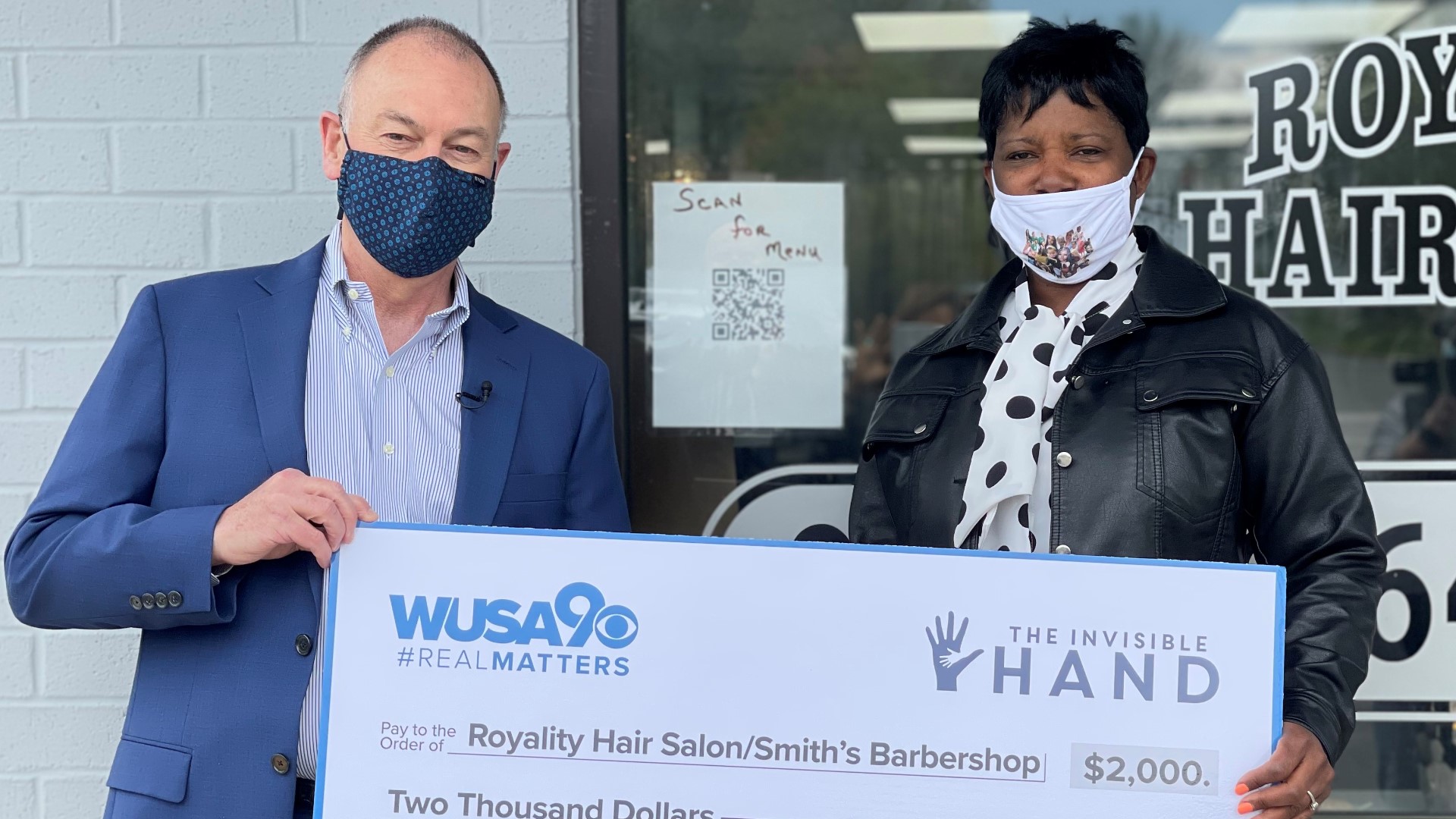GLENARDEN, Md. — For decades, the Smith family in Glenarden, Maryland has had a hand on the heads and hearts of people who call this tree-lined community home.
It started long ago before the drumbeat of freedom extended to all in a Prince George’s County enclave. It continued through the love of a Navy serviceman who realized the dreams of his ancestors and paved the way for generations to come.
You may have passed this little-known part of history on your drive from D.C. into Maryland and that's where Lesli Foster sat down with Royality Hair Salon owner, Royette Smith.
Smith said she sees the stress of our times in the strands of her client's hair, especially, in her clients whose essential work has kept them on the frontlines of an ongoing battle.
"When COVID first started, my hair was really suffering," Smith said. "Because we worked a lot. And we very rarely had days off.”
Smith has had fewer heads to put her hands on these days. COVID-19 shut down the salon for months and many of her clients were skittish about coming back.
“I feel extra special to be able to do her hair," she said, referring to a client. "And because she’s in the health industry, I want her to look good for her customers too."
Helping people look good is in Smith's DNA. Her father, Raymond Smith, opened Smith’s Barbershop back in 1958. His life of serving others started in the Navy.

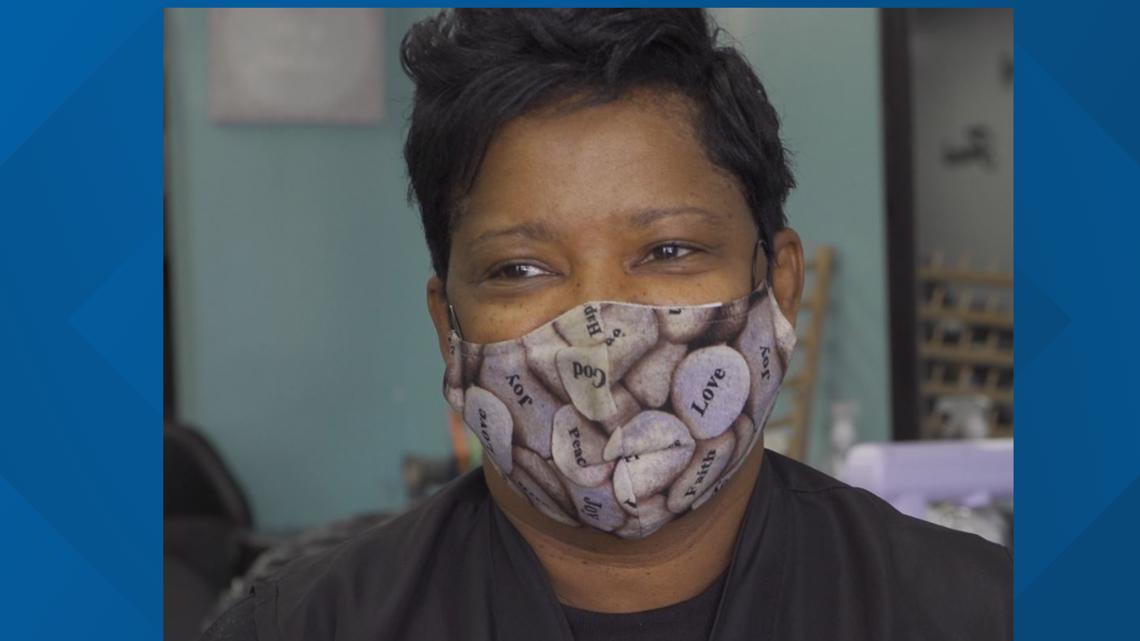
“He was one of the only Black barbers in the Navy," Smith said. "So this is how the barbershop looked when him and his friends, you know, got together and tried to build the barbershop.”
Smith's Barbershop survived some turbulent times and changing demographics in our nation’s history. Today, the storefront off Martin Luther King Junior Highway is one of the oldest Black-owned businesses in Glenarden, Md.

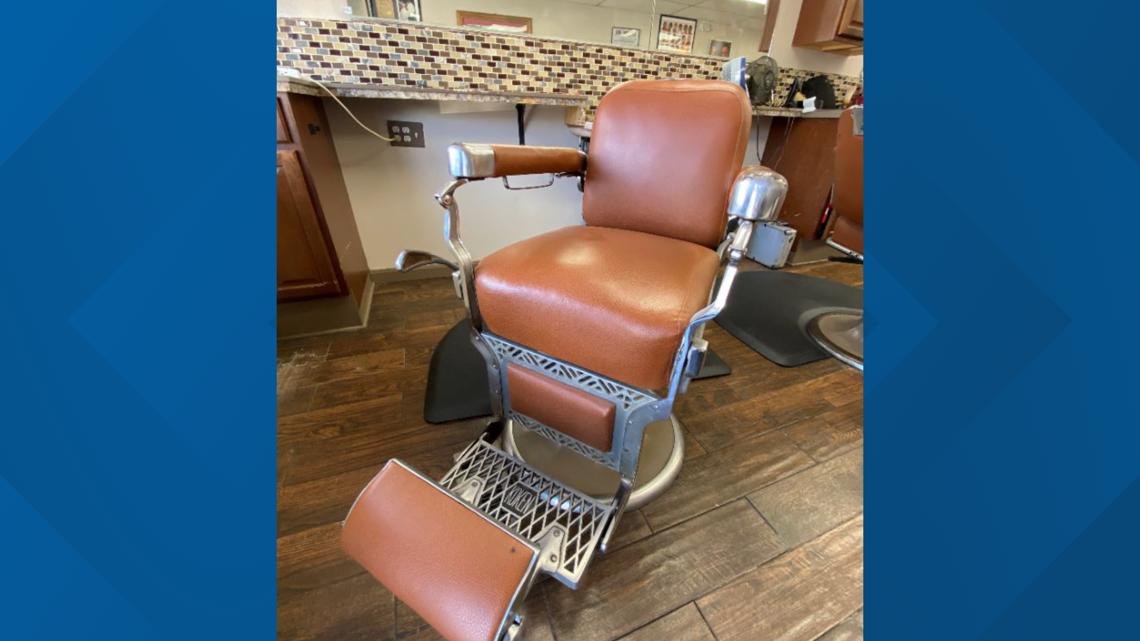
"This is the chair where my Dad cut, here," Smith said, pointing to a chair. "He wanted to be in the front to be able to watch everything and be able to see everybody come in and out. This is where it started.”
Now, Smith is fighting to keep the legacy alive.
“Even though we don’t work full time, I still have to pay the gas, the electric, the water, to keep everything on so that people can work,” Smith said.

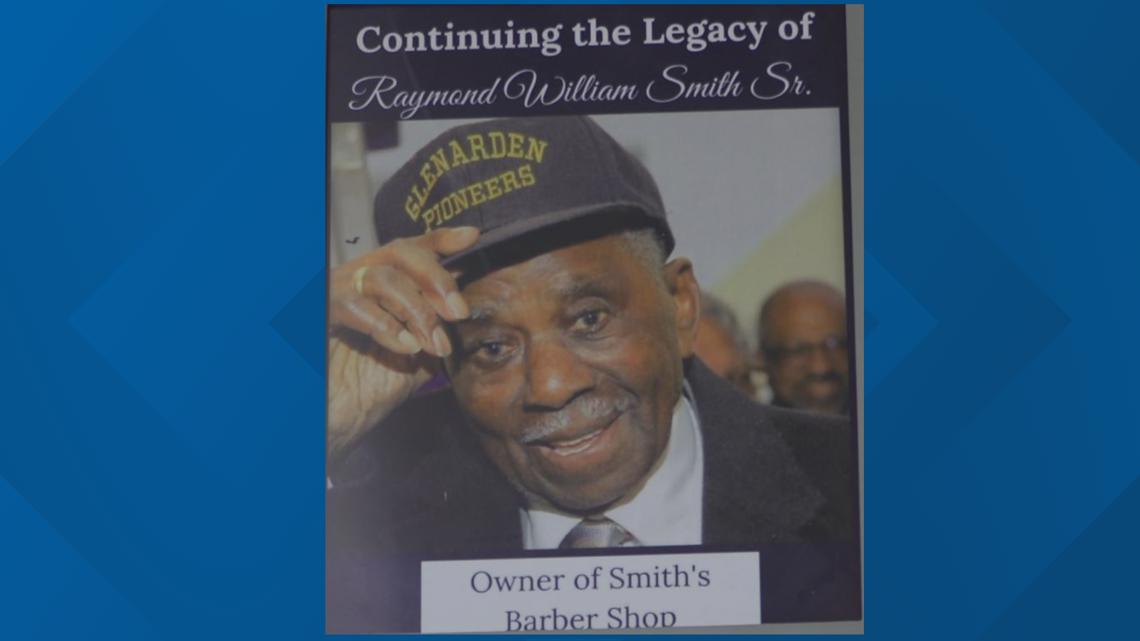
When asked about the pressure of being a small business owner and employing people, Smith said she cried at home a lot in the beginning.
"I really felt bad that my people couldn’t work," she said.
Smith received loans to stand up the businesses, but much of those funds went to keeping them sanitized.

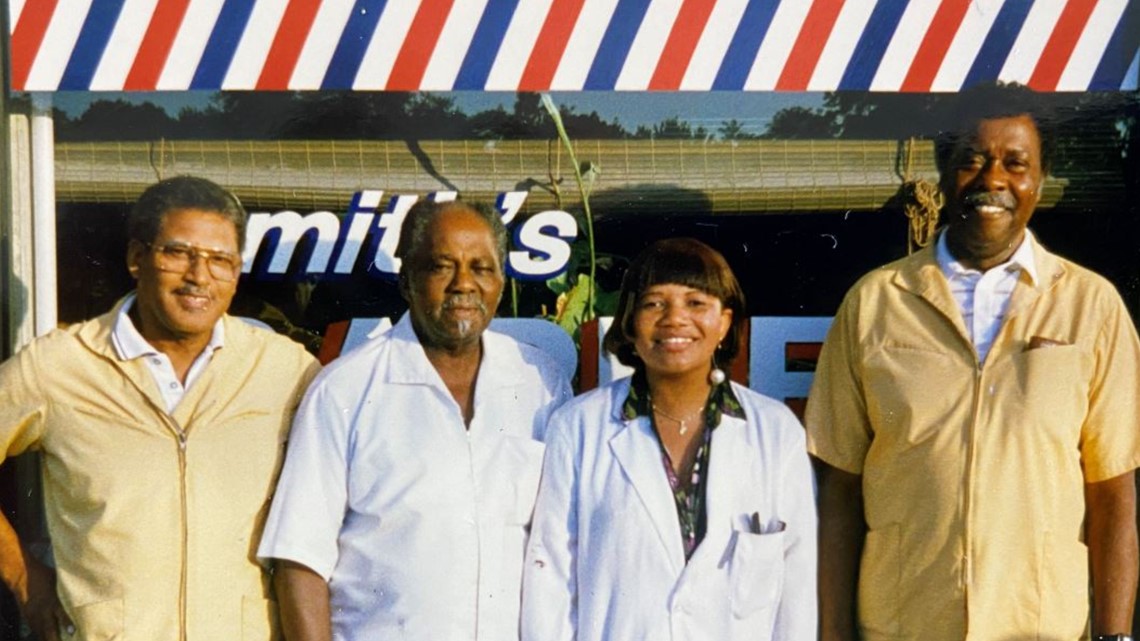
But what keeps Royette coming back to this chair is the love of her craft and her family. Smith said her enslaved grandmother once lived and labored at the Northampton Plantation Slave Quarters. She made it possible for her son, Raymond, to pursue his dreams.
“Sounds like you don’t have a choice," Foster said to Smith. "You’re doing this not just for your Dad, but for your grandmother. You’re doing this for your ancestors. You’re doing it because you are their wildest dream.”
“My Dad would want us to do this," Smith replied. "He would want us to never give up.”
Smith added a restaurant to her father’s storefront and there’s now a memorial chair sitting outside in his honor. She said she will never forget who made it possible for her to do what she does today.
Inspired by Smith's story, WUSA9 teamed up with The Invisible Hand Foundation, an organization who brings together donors who believe in giving anonymously to lift up people and change lives in our community.
"We lift people up over obstacles that are blocking a constructive path," John Pierce, with The Invisible Hand, said. "We heard COVID has been a bit of an obstacle with you these days and so we wanted to present you with a little bit of help for your business to help lift you up over these hard times."
The Invisible Hand Foundation donated $2,000 to help Smith overcome obstacles and keep her family's legacy alive.
Thank you so much, this is wonderful," Smith said overcome with emotion. "I didn’t’ know you were going to do this! I just want to thank you so much, this will really put to good use. It will help me pay the bills, help me keep the business afloat. Thank you."
"It’s a good cry," Foster said as tears rolled down Smith's face.

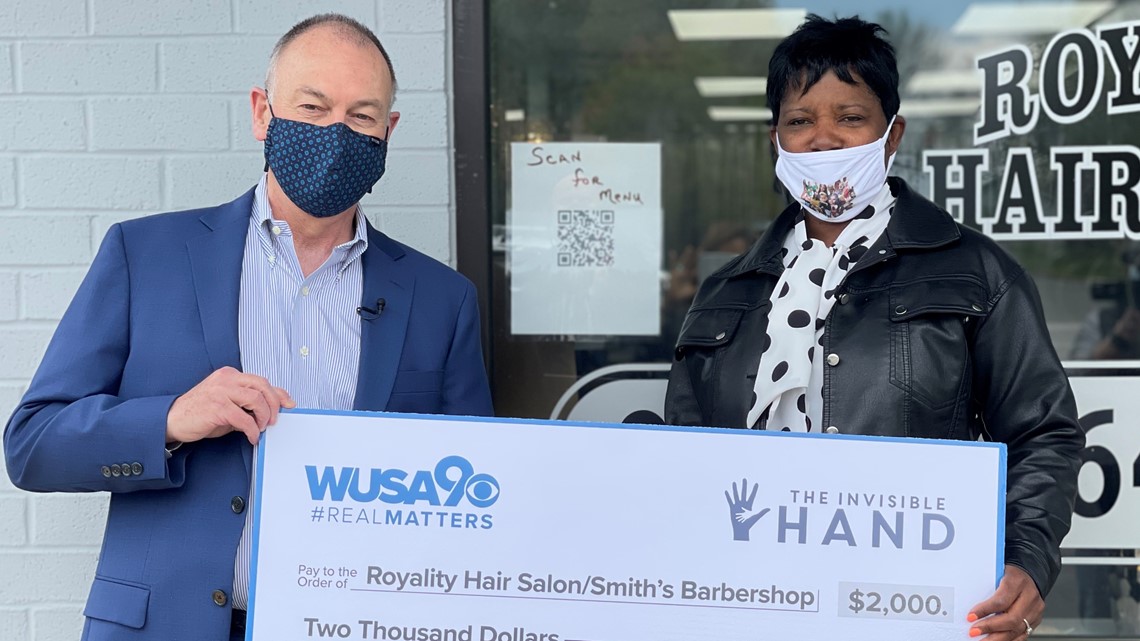
The Invisible Hand Foundation hopes copycats will define their own mission and give back to the community anonymously.
"It seems like I’m always fighting to get stuff done here and this is just wonderful," Smith added. "Because of COVID, it's been really, really hard. This is really wonderful and I thank you so much."

